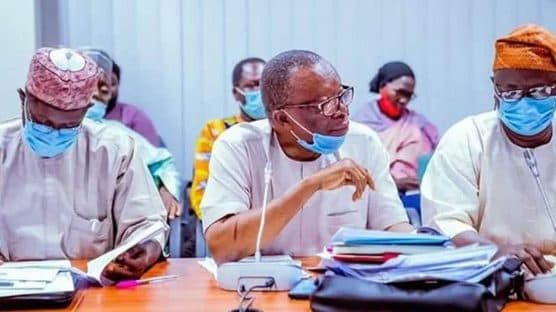Prof. Emmanuel Osodeke, Chairman of the Academic Staff Union of Universities (ASUU), has voiced his concern over the influence of “godfatherism” in the Nigerian university system. He made these remarks during an event in Abuja commemorating the 60th anniversary of the Committee of Vice Chancellors of Nigerian Universities (CVCNU).
Osodeke advocated for universities to be administered in a manner reminiscent of the 1960s and 1970s when there was minimal interference from government officials. He stressed the importance of taking Nigerian universities to a “uni-versatility” level, transcending regional boundaries.
The ASUU chairman noted the evolution of university lecturers across generations. He described the first generation as those with first-class and second-class upper degrees who aspired to become lecturers even when they had opportunities in the banking sector. According to Osodeke, the third generation comprises individuals with third-class and Higher National Diploma (HND) qualifications who entered the university system through “godfatherism,” while the fourth generation is primarily motivated by monetary gain.
He expressed concern that as the first and second generations of lecturers retire and leave the country, the third and fourth generations, influenced by different motivations, dominate the system.
READ ALSO: Kano Assembly Passes N58 billion Supplementary Budget
Osodeke lamented the current hiring process in universities, which he claimed is tainted by godfatherism and bureaucratic hurdles. He highlighted the need to restore a fair and transparent process of advertising positions, receiving applications, and conducting interviews for academic positions.
The ASUU chairman also pointed out the shortage of lecturers and insufficient funding in the educational system. He emphasized that Nigeria’s allocation for education falls far below the African average, typically around 12 percent, whereas it was only 3.8 percent in Nigeria the previous year.
In response to these concerns, Prof. Tahir Mamman, the Minister of Education, indicated that the government had approved a salary increase of 35 percent for academics and 25 percent for non-academic staff as part of its commitment to staff welfare. He mentioned that payments for the revitalization of tertiary institutions were underway.
Mamman also revealed that steps had been taken to power universities through gas-powered facilities, using the government’s Public-Private Partnership (PPP) approach. He announced plans to initiate this scheme with 18 universities initially.
Regarding security in schools, the minister mentioned arrangements were in place for a meeting with heads of key security outfits to review and enhance security coverage. He emphasized the government’s role in supporting public sector universities with appropriate resources while promoting the development of private universities.











